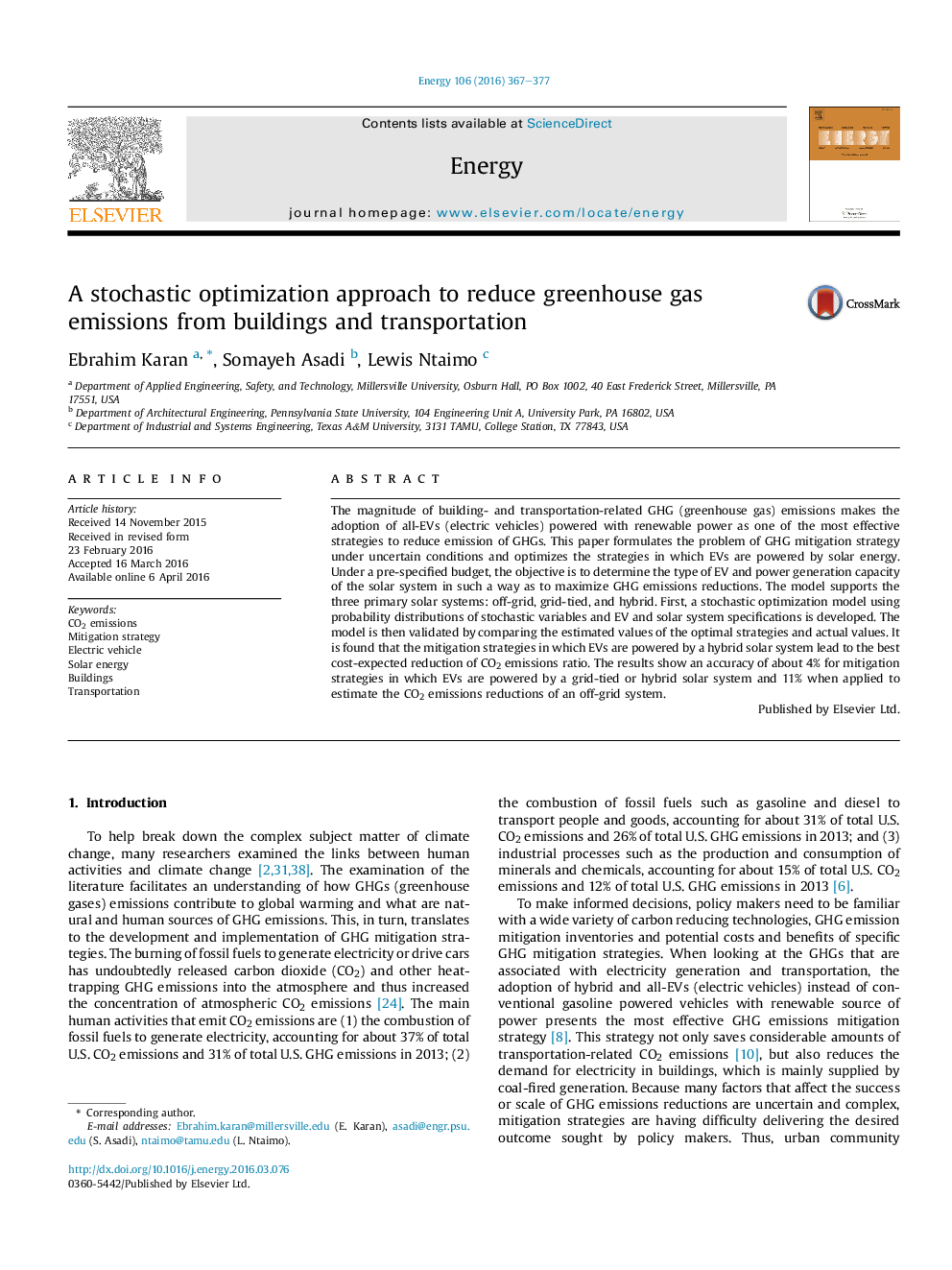| Article ID | Journal | Published Year | Pages | File Type |
|---|---|---|---|---|
| 1730966 | Energy | 2016 | 11 Pages |
•The problem of GHG mitigation is formulated as a stochastic optimization problem.•The objective is to maximize CO2 emissions reductions within a specified budget.•The stochastic model is validated using actual data.•The results show an estimation accuracy of 4–11%.
The magnitude of building- and transportation-related GHG (greenhouse gas) emissions makes the adoption of all-EVs (electric vehicles) powered with renewable power as one of the most effective strategies to reduce emission of GHGs. This paper formulates the problem of GHG mitigation strategy under uncertain conditions and optimizes the strategies in which EVs are powered by solar energy. Under a pre-specified budget, the objective is to determine the type of EV and power generation capacity of the solar system in such a way as to maximize GHG emissions reductions. The model supports the three primary solar systems: off-grid, grid-tied, and hybrid. First, a stochastic optimization model using probability distributions of stochastic variables and EV and solar system specifications is developed. The model is then validated by comparing the estimated values of the optimal strategies and actual values. It is found that the mitigation strategies in which EVs are powered by a hybrid solar system lead to the best cost-expected reduction of CO2 emissions ratio. The results show an accuracy of about 4% for mitigation strategies in which EVs are powered by a grid-tied or hybrid solar system and 11% when applied to estimate the CO2 emissions reductions of an off-grid system.
